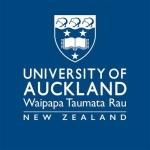Business School Researchers Pleased at Hint of Korean Fishing Arrests
Auckland Business School academics whose research was responsible for revealing widespread human rights violations aboard foreign chartered fishing vessels trolling New Zealand waters are welcoming the hint of arrests within Korea.
Dr Christina Stringer and Glenn Simmons, of The University of Auckland Business School’s Department of Management and International Business, together with the New Zealand Asia Institute, say reports from a Korean government joint investigation team are pointing towards the imminent arrest of four Korean officers suspected of assault and other serious charges.
This follows recent findings from the National Human Rights Commission of Korea, which released a strongly worded statement saying government officials and businesses in New Zealand had to take action to stop human resource breaches on chartered foreign fishing vessels or trigger possible “inter-state conflict.”
Mr Simmons, who has just returned from Iceland where he and Dr Stringer looked at sustainable value capturing practices in that country’s fishing industry, said the inter-agency investigation team has met with two Indonesian crew visiting Korea at the invitation of a Korean civic group, and will visit Indonesia later this month to conduct further investigations.
“The team has confirmed that foreign workers on South Korean deep-sea fishing vessels operating in waters off New Zealand’s coast have suffered violence and unfair labour practices,” he says.
“It has also requested that four Korean officers involved be booked on suspicion of assault and other charges. That is the best news for us.”
The investigation team statement said it is also planning criminal charges against other firms denying foreign workers their severance pay and paid leave, and will be further investigating the guaranteeing of a minimum wage.
In the meantime, civic groups such as the Korean House for International Solidarity has petitioned Korea’s Human Rights Commission regarding the issue, which says a thorough investigation into physical, verbal and sexual harassment and wage discrimination is necessary to develop “preventative and remedial measures of human rights violations against foreign sailors in a deep-sea fishing vessel.”
The Commission, which lacks jurisdiction to properly investigate the complaints, instead urged Korea’s Minister of Food, Agriculture, Forestry and Fisheries, along with the Minister of Land, Transport and Maritime Affairs and the Minister of Foreign Affairs and Trade to undertake a joint high-level investigation with the Korean Coast Guard.
It has also instructed the president of Sajo Oyang Corporation – which owns some of the fishing vessels accused of human rights violations – to settle “matters of human rights violation” against mainly Indonesian sailors and make sure nothing like this happens again.
“Relevant institutions and business owners should strengthen remedial measures for the promotion and protection of human rights of employees from foreign countries, since human rights violations against them on the high seas or foreign soil are difficult to rectify and could trigger an inter-state conflict,” it said.
Last year, 32 Indonesian crew from Sajo Oyang-affiliated deep-sea fishing vessel Oyang 75 and seven from the Shin Ji, both of which had been fishing quota in New Zealand’s exclusive economic zone, walked off their vessels en masse. They claimed they had been subjected to a raft of human rights abuses including sexual abuse, violence and their wages withheld.
A New Zealand Government Ministerial Inquiry supported the workers’ claims in February and made 15 far-reaching recommendations. In May, the Primary Industries Minister David Carter and Labour Minister Kate Wilkinson announced that, following a transition period, foreign charter vessels would be banned from New Zealand waters.
The transition period will include stronger monitoring and enforcement, tougher safety monitoring of vessels and the placement of ministry observers on all vessels.
